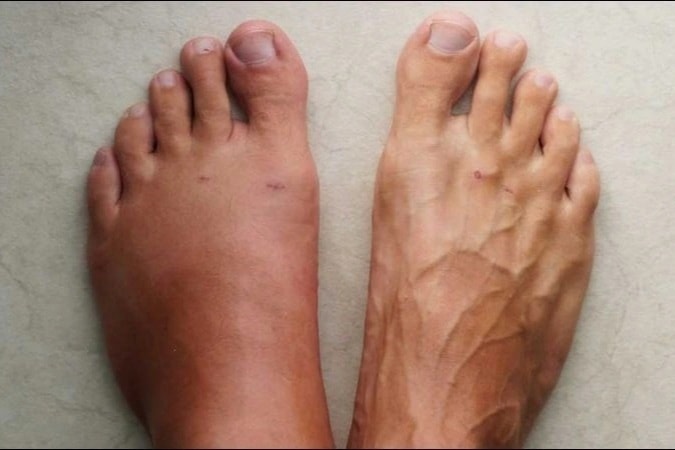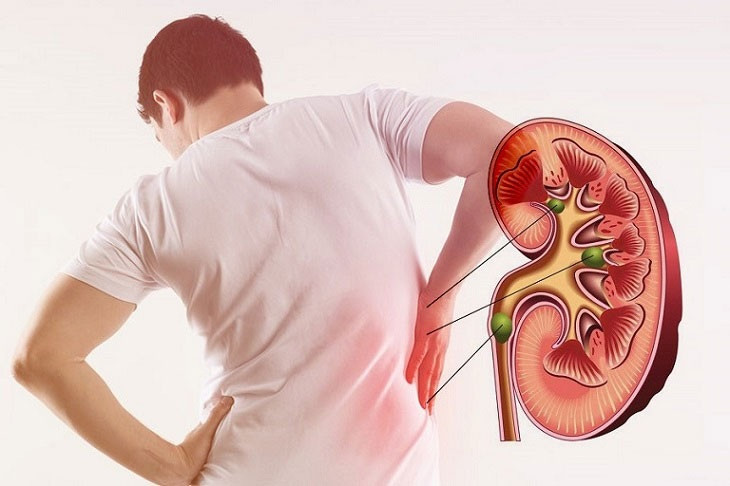6 signs that your kidneys may be failing
Your kidneys are important to your overall health. They are responsible for many functions, from processing body waste to making hormones.
The kidneys are organs of the urinary system, known for their important role in removing toxins and excess fluids from the body. The kidneys help regulate sodium and potassium in the blood, thereby regulating blood pressure at a stable level.
Healthy kidneys filter waste from the blood at a rate of 90 ml per minute or more. This is called the glomerular filtration rate, or GFR. Over time, many men's kidneys begin to lose function, but you won't feel the effects right away.
On the other hand, the lack of early warning from symptoms can cost you the chance to slow the damage. Most people don't start to feel really sick until their kidney function is below 10%.
The kidneys have the ability to compensate. When one kidney fails, the opposite kidney can increase its activity to compensate. Therefore, kidney diseases are often very discreet and difficult to detect. The best way to protect the kidneys is to control blood sugar and blood pressure. Diabetes and high blood pressure are the two main culprits in 2/3 of patients with kidney failure.
According to the Vietnam Institute of Applied Medicine, if you have one of the following signs, you should go for a check-up immediately without waiting for your annual check-up:
Edema and weight gain
The kidneys play a role in eliminating waste products through urine. When the kidneys fail to function, substances are not eliminated but retained, increasing fluid retention in the tissues, causing edema and weight gain.

Edema is one of the warning signs of kidney disease. Photo: Getty
Little urine
When the kidneys are less active, water retention in the tissues increases, and the amount of water excreted (urine) also decreases, even if you drink a lot of water.
Feeling tired and sleepy
One of the functions of the kidneys that needs to be mentioned is regulating the concentration of hemoglobin in the blood. When this function is reduced, the body shows signs of anemia, causing symptoms of fatigue and drowsiness.
Loss of appetite, nausea, difficulty thinking clearly
This symptom is explained by the accumulation of toxins and waste in the body for too long, causing disruption of stomach and brain function.
High blood pressure
When the kidneys are damaged, their ability to control blood pressure is also affected. The pressure in the blood vessels remains high, damaging the blood vessels to the kidneys, further worsening kidney failure.
Arrhythmia
The kidneys regulate the amount of potassium in the blood. Potassium is the main ion in cells responsible for ensuring the functioning of the heart muscle by generating and conducting impulses. Therefore, changes in potassium levels can cause heart rhythm disturbances.
Note to protect the kidneys

To protect your kidneys, you need to maintain an active and healthy lifestyle. Photo: Getty
You should have a regular health check-up every year to detect problems in your body in time. If you are using drugs that affect the kidneys such as non-steroidal anti-inflammatory drugs (NSAIDs), some antibiotics, drugs containing iodine or lithium, etc., you need to consult a specialist.
In addition, according toHealthlineTo protect your kidneys, you need to maintain an active and healthy lifestyle. Regular exercise is not only good for your waistline, but it can also reduce your risk of chronic kidney disease.
It may also lower blood pressure and promote heart health, both of which are important for preventing kidney damage.
Also, remember to drink plenty of water. Drinking 8 glasses of water a day is a good goal because it encourages you to stay hydrated. Drinking water regularly and consistently is good for your kidneys.
Water helps flush sodium and toxins from the kidneys. It also reduces the risk of chronic kidney disease.


